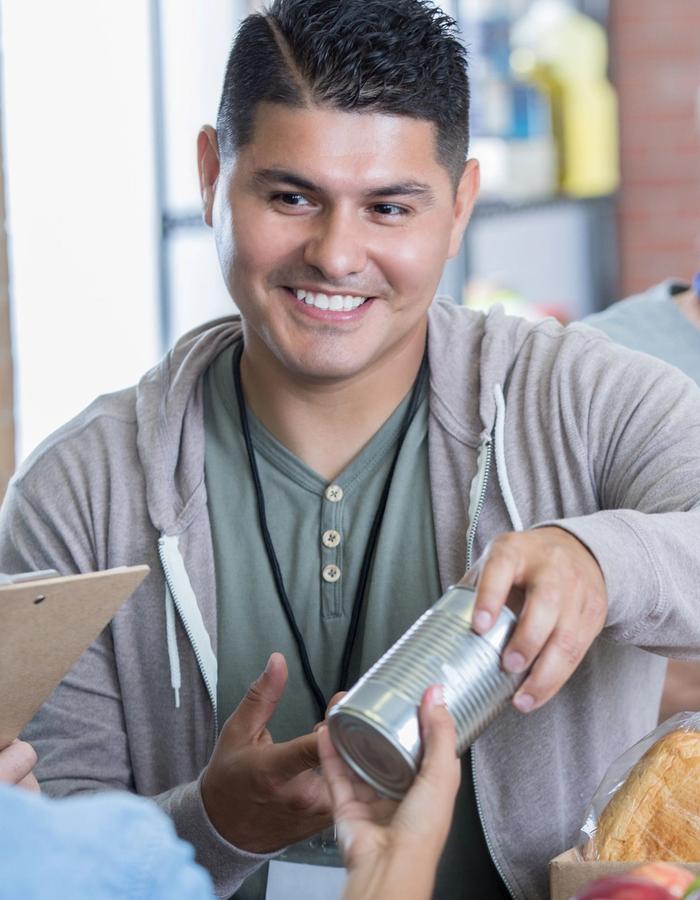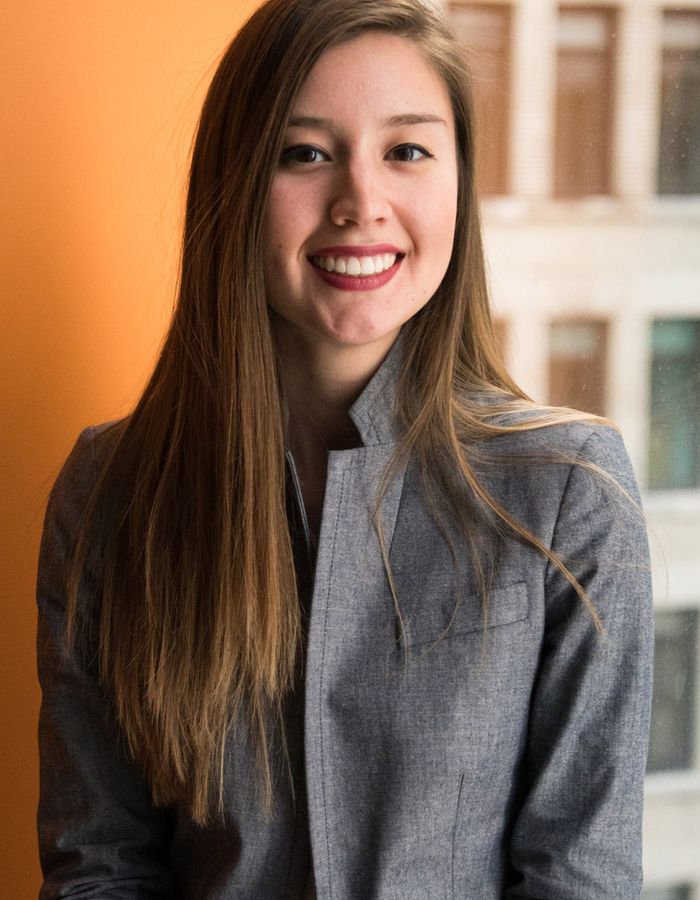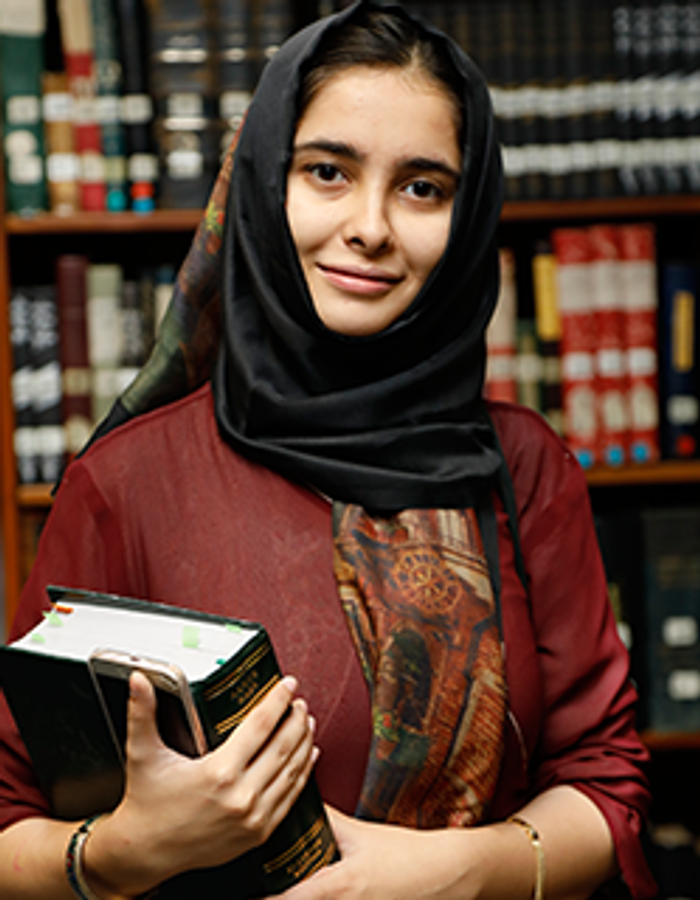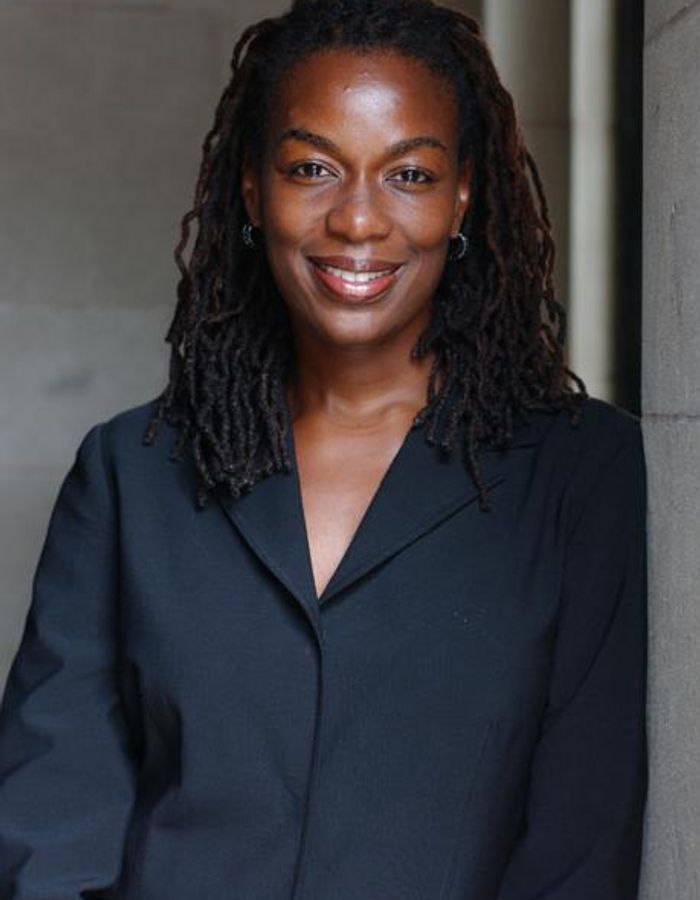Spotlight - Hope and Dreams Initiative
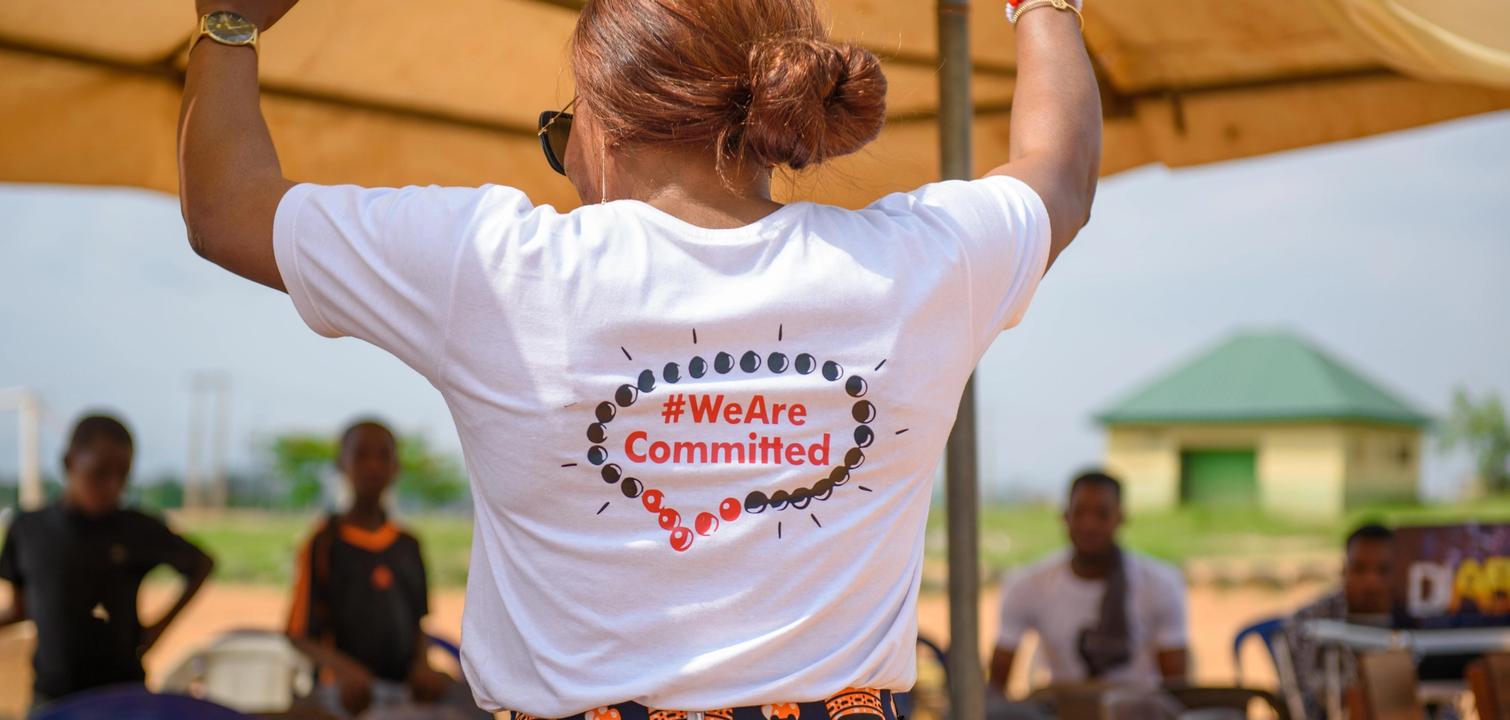
We talked to the Hope and Dreams Initiative, an organisation with a mission to educate, empower and enable young people from under-served communities in Nigeria to find out more about their work and how they benefit from our BRIDGE programme.
Hopes and Dreams Initiative are part of our #MHDay2022 BRIDGE cohort in partnership with WASH United and The Case For Her and our goal is to help them raise awareness and champion education around menstrual health and hygiene by improving their digital fundraising and advocacy skills.
Let’s find out more about the organisation from their founder, Nguzo Ogbodo.
Why did you start your organisation?
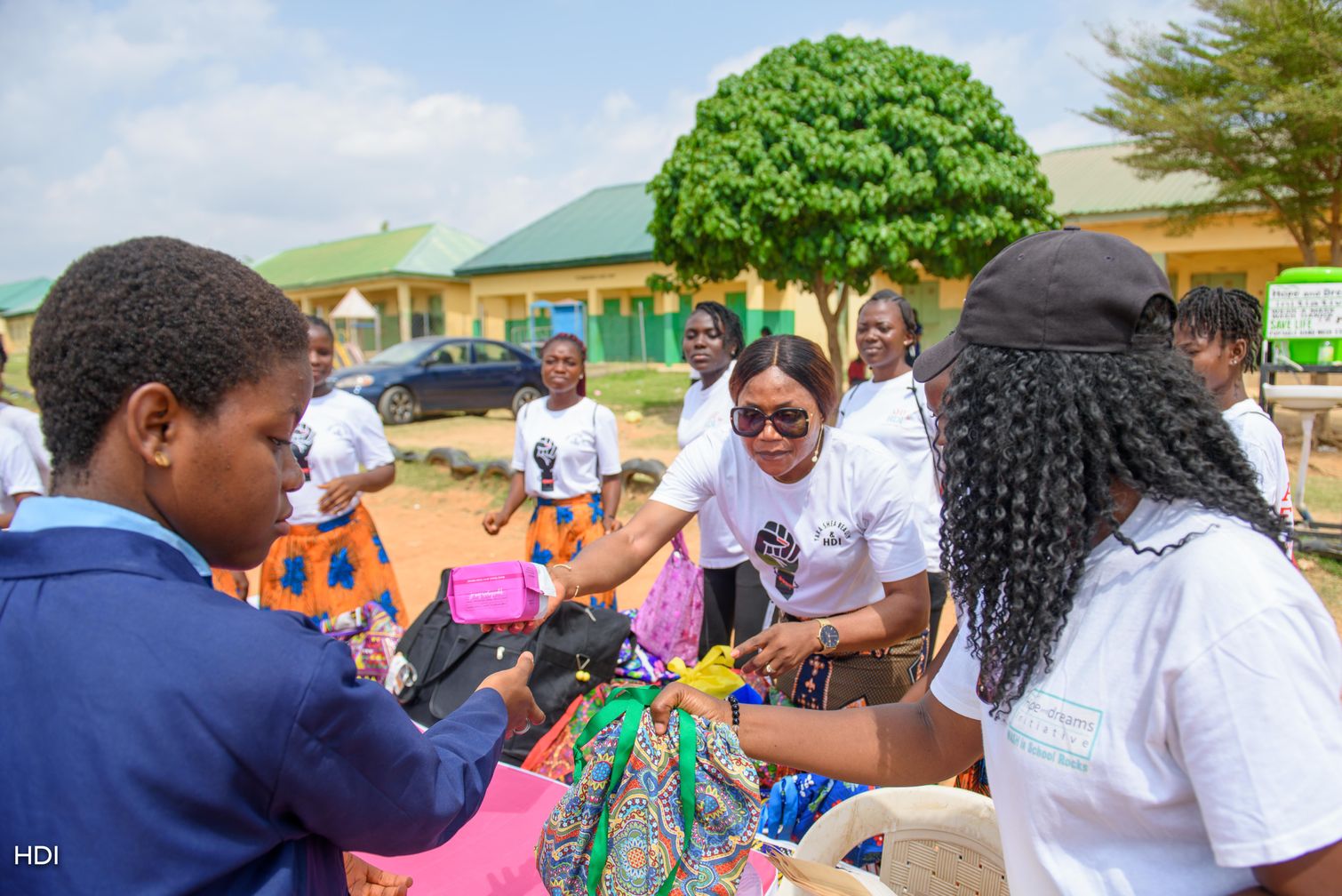
We launched the Hope and Dreams Initiative in 2011 to give out educational books in public schools but we soon realised that students didn’t have basic wash facilities and barely a hygiene education –this made us realise that a more holistic approach was needed.
The lack of resources gets most mothers to spend their money on food rather than sanitary pads so many girls would resort to rags or tissue paper. We shifted our goal from sharing books to giving girls the basic healthcare needs they deserve. Our mission is to provide holistic menstrual hygiene education and we hope to create awareness and eliminate stigma and shame.
What is your proudest achievement?
Our proudest achievement is building a community library and a safe space for people to talk about sensitive topics such as menstrual hygiene and HIV. This is where counsellors provide support and education, plus where girls receive menstrual hygiene products.
Why is Menstrual Hygiene Day important to you?
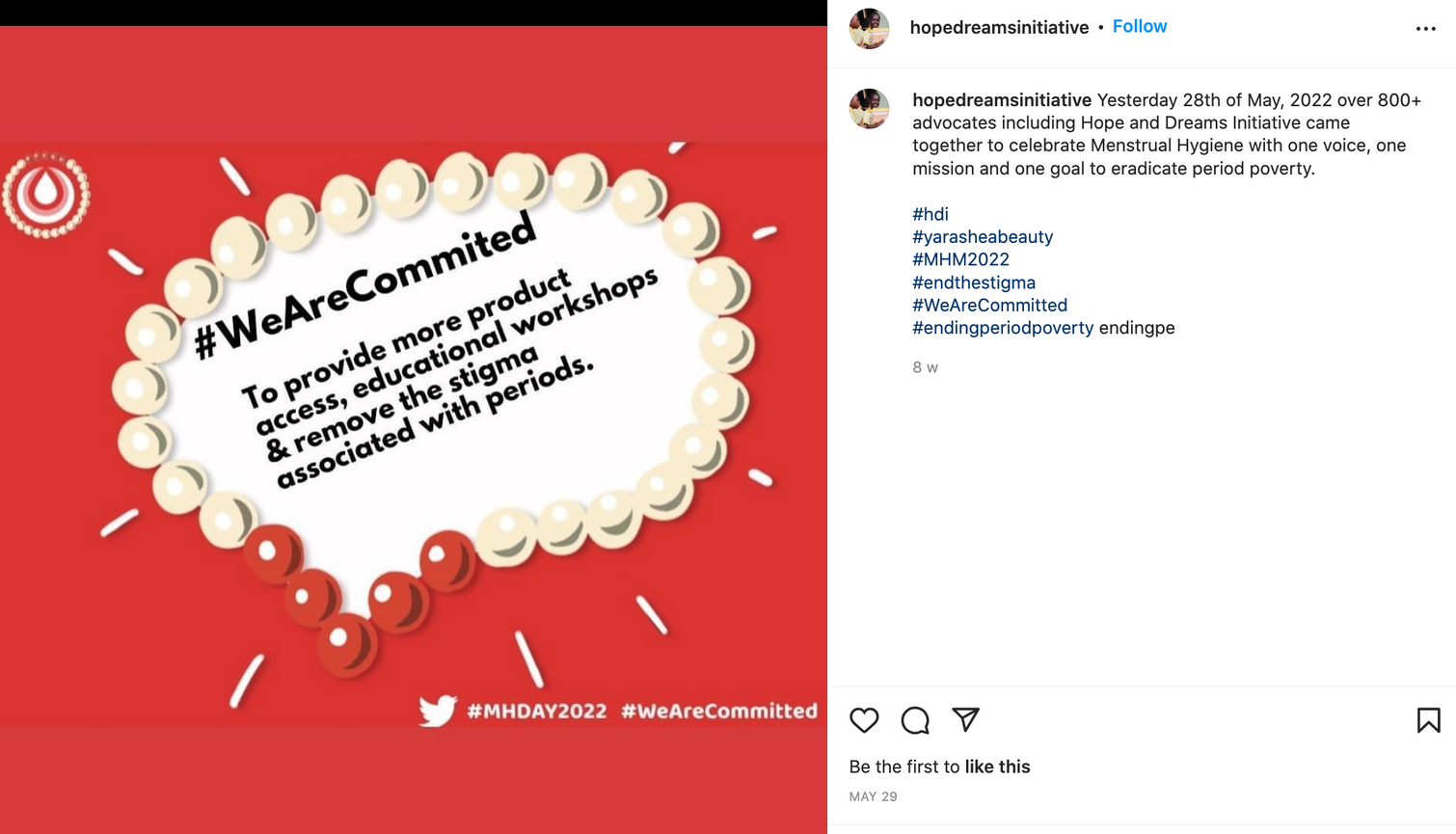
The 28th of May is very close to my heart as it brings together all the women and girls we work with.
We run a festival in the local community that includes talks, songs, and drama shows - all with the aim of talking about periods through open conversations. The activities are led in English and also in local dialects in Nigeria. It’s amazing to hear how the word ‘period’ translates in these different languages, and what it means to each person.
We have a DJ and artists along with a huge canvas where girls can express how they feel about periods in a creative way.
How do you involve parents?
We cannot make the change that we want to without involving the parents, especially fathers. We have always included boys in the education programme in schools - every boy has a mother, sister, aunt, girlfriend, wife so they need to know what women go through.
How can someone support you?
We reach out to organisations in the USA to collect sanitary products and I also host events in New York to collect hygienic pads. We also have a GoFundMe campaign to raise funds.
What impact have you seen from your work?
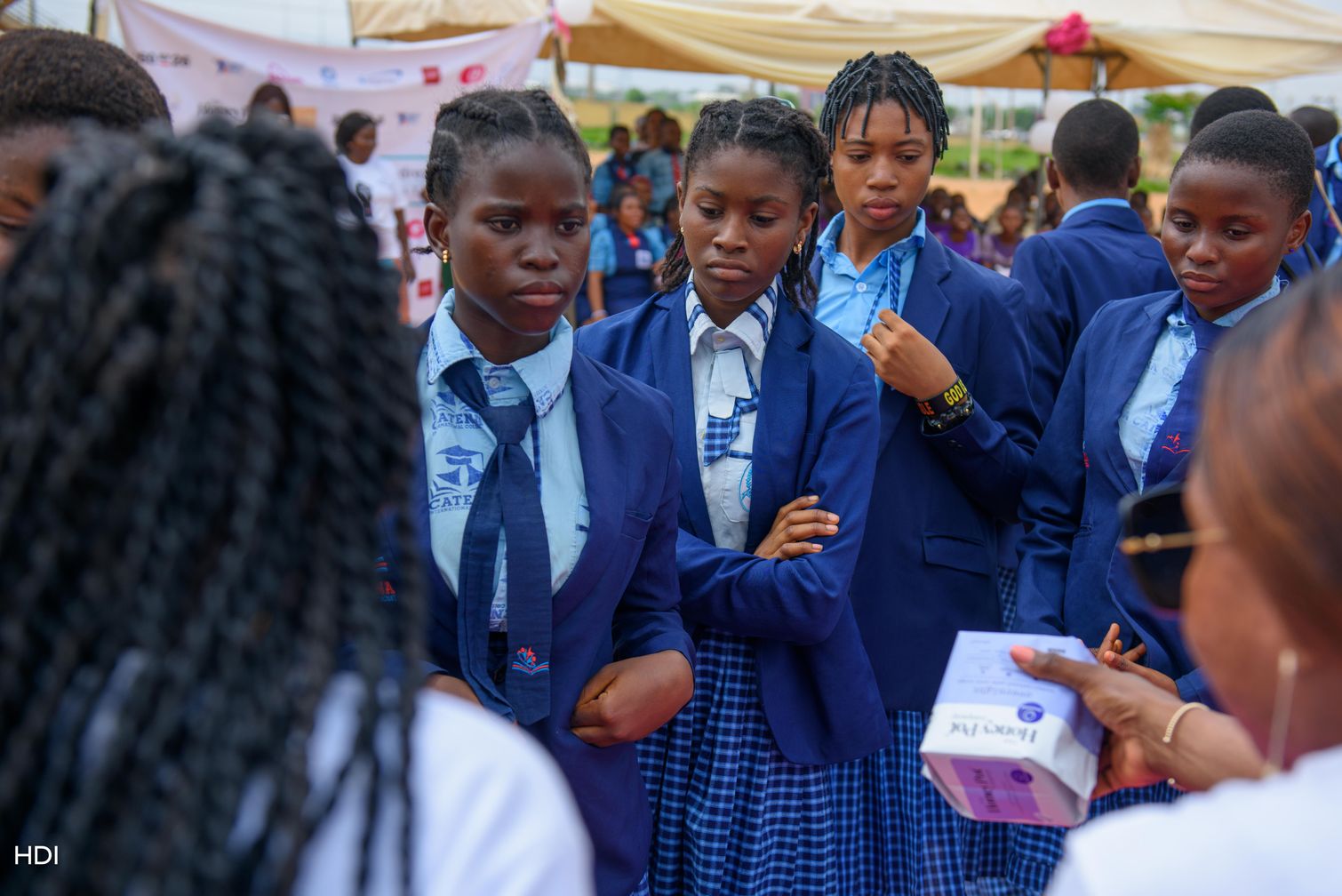
Girls can now talk about menstruation without hesitation. Because of the culture and tradition in Nigeria, young girls do not talk openly about their bodies, especially about their periods.
One girl could not bring herself to say the word ‘vagina’. It took her five years to be able to say that world - I felt like I had already achieved my goal by seeing that behavioural change.
Children are also bringing back knowledge to their parents so it’s great to see that the education we provide is having a ripple effect on other generations
We’ve had testimonials from fathers saying, ‘we wish we had this kind of programme when we were younger. Things would have been different for the girls in our family’.
I really believe that knowledge is power, and education is power.
How has BRIDGE helped your work?
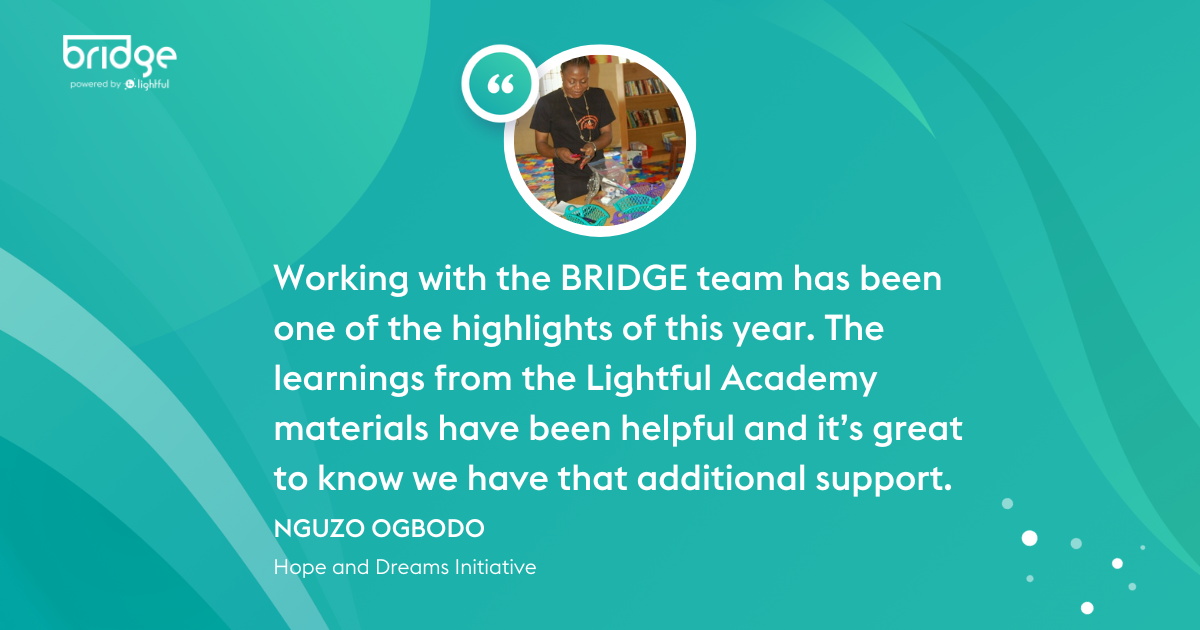
We can’t do anything without being online. Flyers still do work, but being online is what gets the message across.
Working with the BRIDGE team has been one of the highlights of this year, the learnings from Lightful Academy materials have been helpful and it’s great to know we have that additional support.
It’s amazing to know that other people will see our work through Lightful.
What’s your message to other nonprofits joining the BRIDGE cohort?
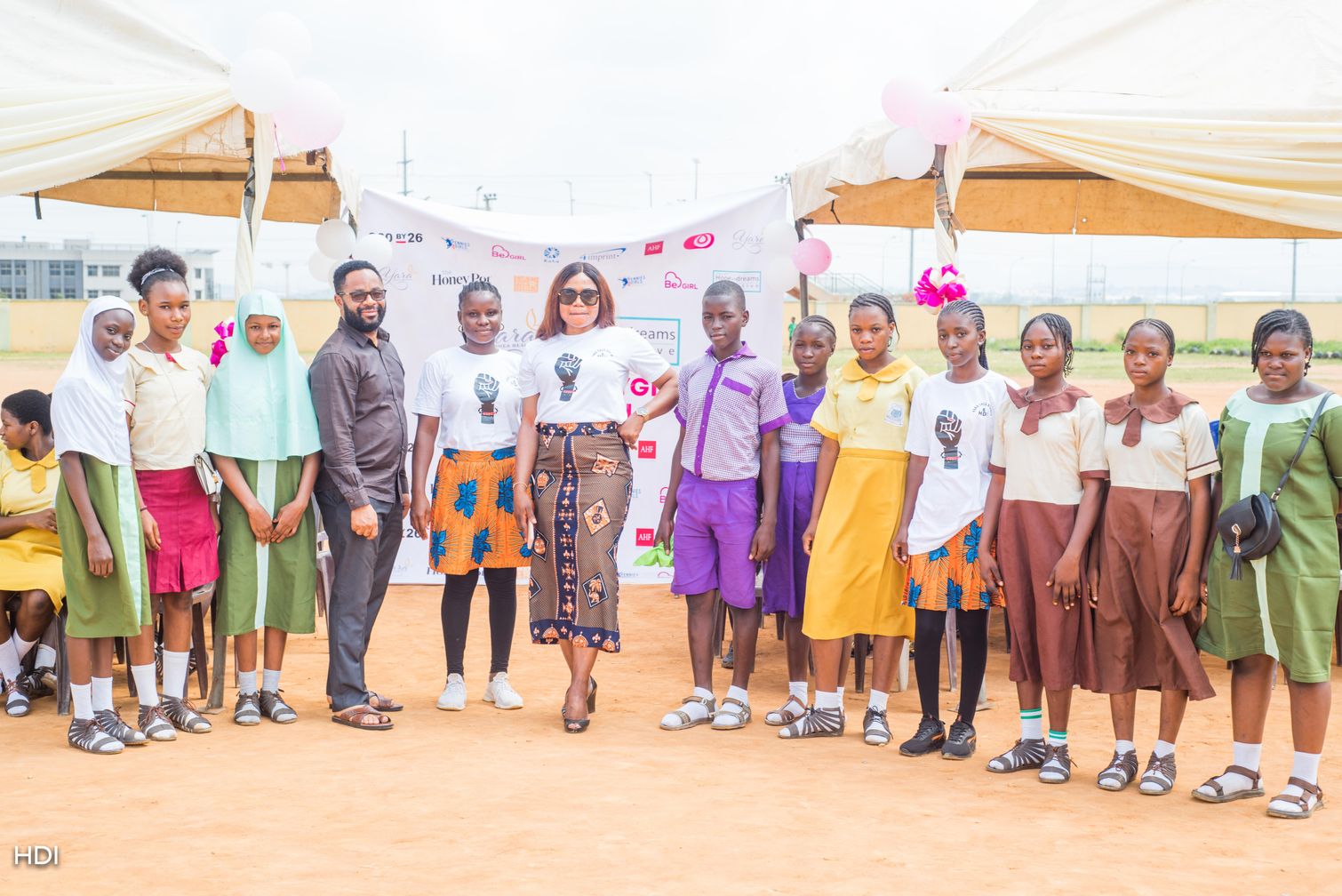
There is still more to be done and we cannot do it alone.
We need more people, we need more support - not everyone can start a nonprofit, so help the ones that are already in place.
Menstruation is a natural thing, so if you see any young girl who is going through it, stop and guide her and advise her. It’s not just about period products, it’s more than that, it’s about changing attitudes and providing education.
Women need all the support they can get in the world. Women are always wearing so many hats. We sometimes try to save our families, our communities, and our friends, but we don't always put the time into saving ourselves.
If there is a woman in your life, show her support and show her that you care. Women need love and support, no matter who they are, where they are or how old they are.
Together we can be the change we want to see, but only together.
Follow the Hope and Dreams Initiative
Interested in finding out more about the Hope and Dreams Initiative?
Follow them online:
Lightful's BRIDGE programme works with foundations, companies and donors to grow the digital capacity of their grantees. It builds participants’ confidence in three areas - strategy, storytelling, and fundraising - and results in increased fundraising, amplified awareness, and increased digital confidence. Find out more here.
Latest articles

In a world of growing uncertainty, small and local non-profit organisations often find themselves with competing priorities and struggle to plan how to allocate their available resources. Despite the increasing demand for their vital work, they are not always able to allocate the funds they receive to strategic planning and future growth.
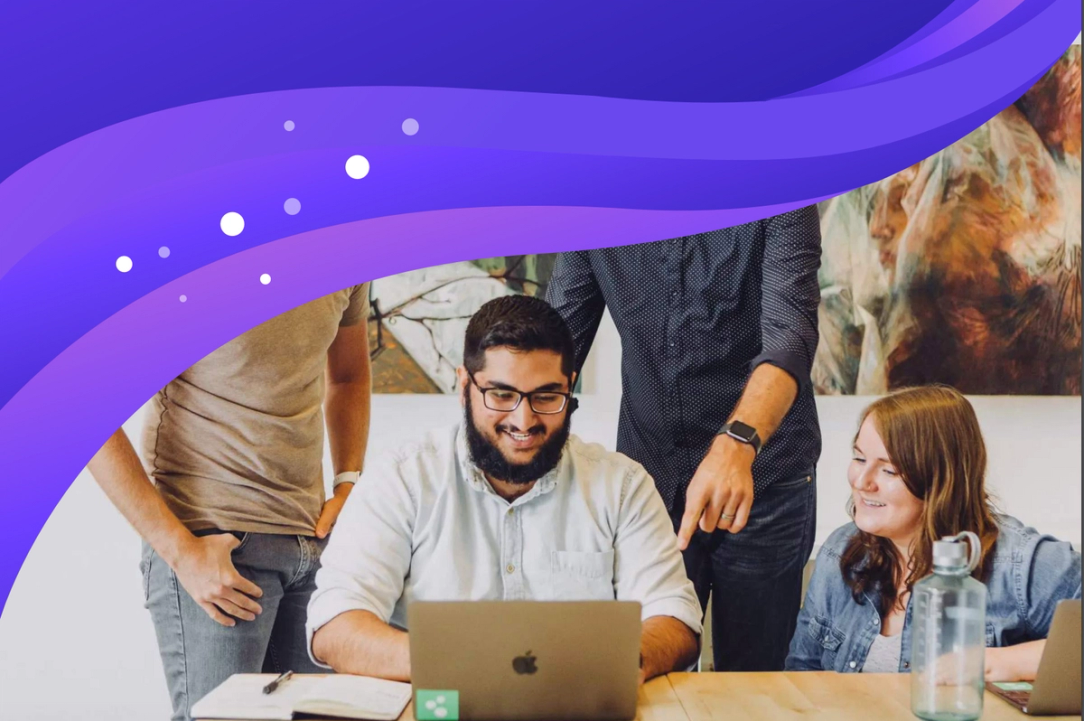
As the world becomes more digitally-focused, it’s essential for nonprofits to have a digital presence. With more and more options for online engagement, we know that this can be challenging for nonprofits to tackle. But, we also know that it is a huge opportunity to increase audience engagement, awareness and fundraising. To help nonprofits navigate this, we’re going to explore the “whys” and “hows” of creating a nonprofit digital strategy. We’re even providing a free digital strategy canvas to help nonprofits improve their online presence in just a few steps.
Related posts
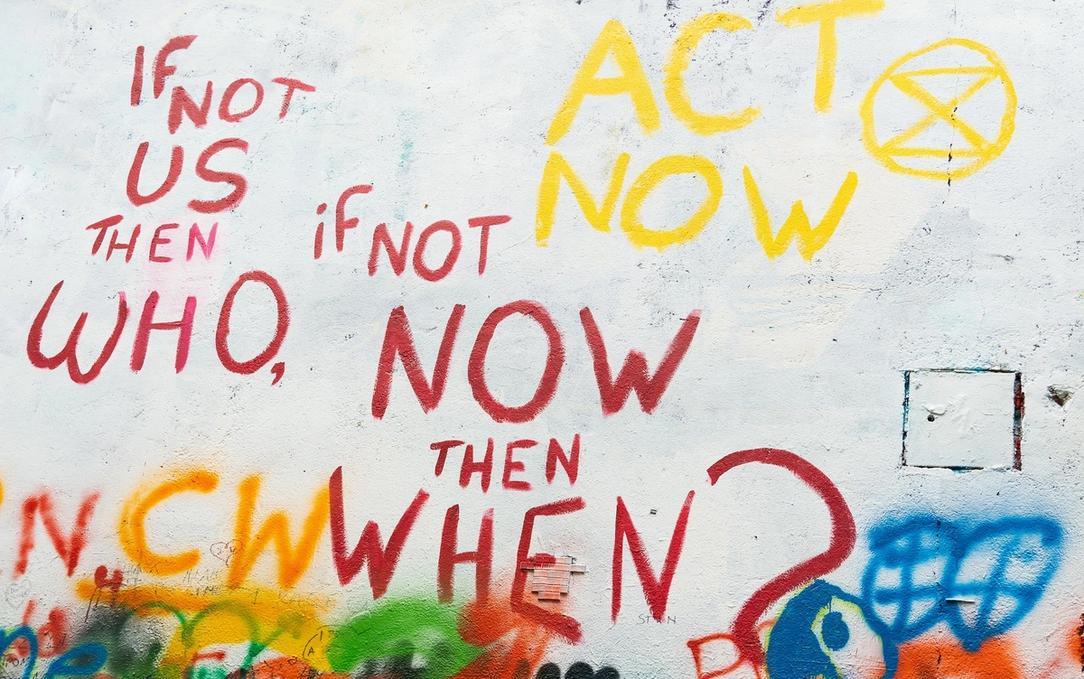
Environmental organisations around the world are working hard to tackle climate change, often with limited resources. What’s the role of digital communications in this battle and what support do they need?
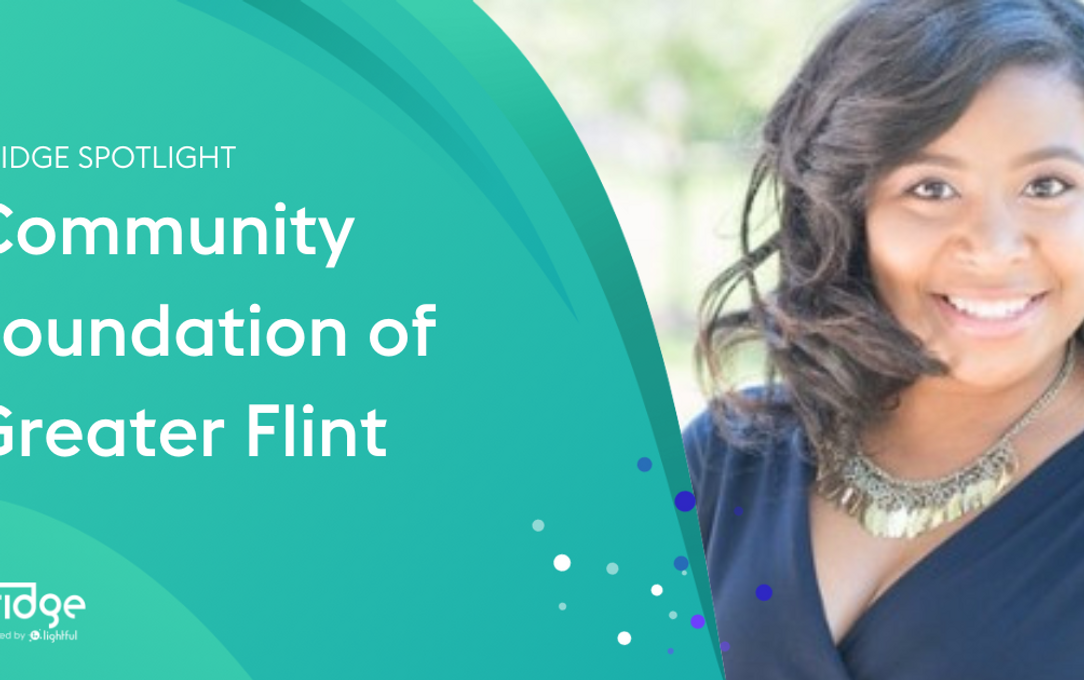
We talked to Chakara Wheeler from the Community Foundation of Greater Flint to find out more about her work and her experience being part of the BRIDGE programme.
See who we help
Contact us
Want to learn more?
Email Jonathan and start a conversation


